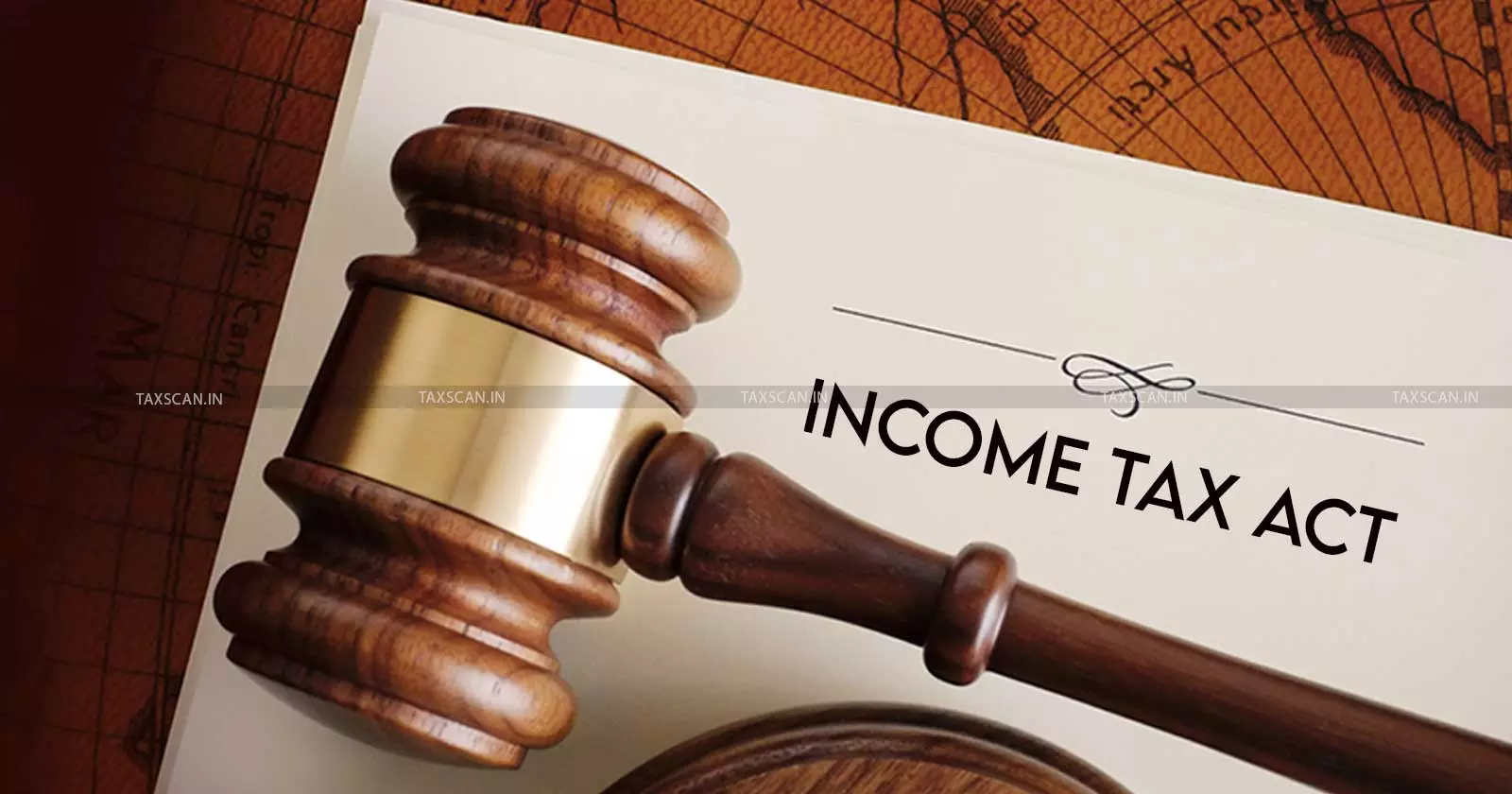Compounding Fees from Illegal Mining Treated as ‘Transfer of Rights’: ITAT confirms TCS Liability u/s 206C(1C) of Income Tax Act Against Mining Officer [Read Order]
The Tribunal further held that the issue of contributions towards the District Mineral Fund and National Mineral Exploration Trust required verification by the Assessing Officer
![Compounding Fees from Illegal Mining Treated as ‘Transfer of Rights’: ITAT confirms TCS Liability u/s 206C(1C) of Income Tax Act Against Mining Officer [Read Order] Compounding Fees from Illegal Mining Treated as ‘Transfer of Rights’: ITAT confirms TCS Liability u/s 206C(1C) of Income Tax Act Against Mining Officer [Read Order]](https://images.taxscan.in/h-upload/2025/09/30/2092781-compounding-fees-from-illegal-mining-itat-tcs-income-tax-act-taxscan.webp)
The Raipur bench of the Income Tax Appellate Tribunal, has ruled that compounding fees collected from illegal mining, transportation, and storage of minerals constitute a ‘transfer of rights’ and consequently attract Tax Collection atSource (TCS) under Section 206C(1C) of the Income Tax Act, 1961.
The case arose from multiple appeals filed by the Mining Officer, Baloda Bazar, Chhattisgarh, for the Assessment Years 2013-14 to 2019-20. The Assessing Officer (AO), vide order dated 01.07.2019 under Section 206C(1C) read with Section 206C(6) and (7) of the Income Tax Act, 1961, treated the Mining Officer as assessee-in-default for not collecting tax at source on compounding fees received from illegal miners, transporters, and storage operators.
Additionally, default was alleged in respect of non-deduction of tax on contributions collected towards District Mineral Fund (DMF) and National Mineral Exploration Trust (NMET) . A total demand of ₹.5,20,32,389 was raised. The Commissioner of Income-Tax (Appeals) [CIT(A)] confirmed the order relying on the ITAT Raipur’s earlier ruling in District Mining Officer, Bemetara v. DCIT (TDS), Raipur (2023).
 Also Read: Delhi HC sets aside Compounding Order passed u/s 279(2) of Income Tax Act Charging 5% as Earlier offence was not Compounded [Read Order]
Also Read: Delhi HC sets aside Compounding Order passed u/s 279(2) of Income Tax Act Charging 5% as Earlier offence was not Compounded [Read Order]
Represented by N.C. Gupta, the Mining Officer argued that compounding fees received from illegal miners and transporters did not amount to “royalty” and hence could not attract the provisions of Section 206C(1C). It was further contended that as a regulatory authority of the Chhattisgarh Government, the Mining Office was not liable to collect tax at source on such amounts. The appellant also argued that payments towards DMF and NMET were made directly by leaseholders, leaving no liability on the Mining Officer to collect tax.
Represented by Dr. Priyanka Patel, the Revenue submitted that the issues of liability under Section 206C(1C) for illegal mining and on DMF contributions had already been deliberated in detail by the Tribunal in District Mining Officer, Bemetara v. DCIT (TDS), Raipur (2023). Accordingly, the appellate authority had rightly followed the precedent, and the Mining Officer’s appeals warranted dismissal.
The Bench comprising Judicial Member, Ravish Sood and Accountant Member, Arun Khodpia observed that the appeals were squarely covered by its earlier judgment in District Mining Officer, Bemetara v. DCIT (TDS), Raipur (supra). Relying on that precedent, the bench held that compounding fees collected from illegal miners and transporters are calculated as multiples of royalty, clearly falling within the ambit of “transfer of rights” envisaged under Section 206C(1C) of the Income Tax Act.
 Also Read: NSL Mining Resource case: Telangana HC directs Income Tax dept to issue fresh order for Rs 143 cr tax demand with NCLT plan [Read Order]
Also Read: NSL Mining Resource case: Telangana HC directs Income Tax dept to issue fresh order for Rs 143 cr tax demand with NCLT plan [Read Order]
The Tribunal thus, upheld the AO’s order treating the Mining Officer as assessee-in-default for failure to collect tax at source on such receipts.
With regard to contributions towards DMF and NMET, the bench directed the AO to verify whether the amounts were directly deposited by leaseholders or routed through the Mining Officer. In cases where payments were made directly to the funds, no liability to collect tax at source would arise. However, if the Mining Officer received such contributions, tax collection at source was mandatory.
Accordingly, ITAT dismissed all seven appeals filed by the Mining Officer for the Assessment Years 2013-14 to 2019-20, confirming liability on compounding fees under Section 206C(1C) of the Income Tax Act.
Support our journalism by subscribing to Taxscan premium. Follow us on Telegram for quick updates


